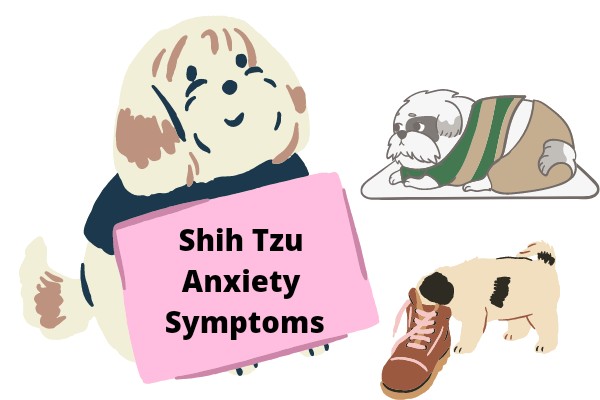Why Do Maltese Shake (9 Common Reasons & More)

Dogs shake for a variety of reasons which brings up the question why do Maltese shake among Maltese owners.
In this post, I will be discussing all the common and possible reasons why your Maltese may be shaking.
I will also highlight some tips to help you with Maltese shaking and finally, I will discuss what causes some specific shaking in Maltese.
So… Sit back and read through!
Why Do Maltese Shake
Excitement, anxiety, chronic depression, stress, cold weather, intense lethargy, generalized tremor syndrome, age, and medical conditions can all cause Maltese dogs to shake.
Let me break things down to a level you understand more…
The following are some of the most common causes of Maltese dogs shaking:
1. Showing symptoms of canine distemper
Distemper is a virus that mostly affects pups and young dogs that have not had all of their vaccinations.
The gastrointestinal, neurological, and respiratory systems are all affected by the distemper virus.
Distemper’s indications and symptoms are typically lethal to both big dogs and small breeds like Maltese dogs.
The good news is that distemper is uncommon among Maltese since they are all fully vaccinated.
However, it is important to note that shaking is a well-known symptom of canine distemper.
Tips
If you believe your Maltese has canine distemper, schedule an appointment with your veterinarian as soon as possible.
A veterinarian is required to treat distemper. Especially if the shaking is followed by chronic lethargy.
2. Symptom of canine arthritis
Your older Maltese dog may be suffering from canine arthritis if he shakes or chills, especially in his hindquarters.
Many pains can cause Maltese to shiver or shake uncontrollably, so keep an eye on your Maltese if you see uncontrollable shaking.
Infections, bruises, and even dental issues may be quite painful for a Maltese dog.
Tips
Depending on the cause of your puppy’s pain, your veterinarian may recommend additional diagnostic testing and/or pain therapy.
3. Symptom of lowered body temperature
Even though a Maltese typical body temperature is 101 to 102.5 degrees Fahrenheit, if the room or ambient temperature drops too low, your Maltese will get chilled.
Your Maltese may begin to tremble if the temperature in the environment drops to a level that your Maltese cannot handle.
Consider the temperature of the room if your Maltese is trembling and the weather isn’t helping.
So, if you’re leaving in a chilly climate, make sure your Maltese body temperature is maintained.
Tips
There are two ways to protect your Maltese from being involved in cold shaking when the temperature in your surroundings is frigid.
To begin, you’ll need Maltese clothing, which can be found for a reasonable price in a range of online and offline pet stores.
The second stage is to boost the temperature of one of your rooms, take your Maltese into that room for a short time, and then exercise him.
4. A sign of old age
As they get elderly, they have health issues as a result of their extended lives, which causes their legs to weaken and shake.
There’s not much you can do to aid an elderly Maltese that shakes or shivers until you visit your veterinarian.
Their joints are weak and old as a result of many health issues linked with aging, and they can no longer efficiently sustain their bodies’ weight.
Senior Maltese are more likely to get tremors in their rear and front legs, making it harder for them to move appropriately and causing shaking or shivering.
Tips
- Talk to your veterinarian.
- Reduce your Maltese exercise level.
- Avoid dehydration.
- Avoid any form of stress.
- Restrict outdoor activities.
- Provide a comfortable bed and space.
5. A sign of excitement
When a family member returns home, Maltese dogs are joyful because they were taught to thrive on human connection.
The eagerness of the Maltese may be seen in his trembling or shaking pores. This isn’t a sign of anxiety or sickness.
Maltese may tremble and quiver when they watch you ready to eat their favorite dish or play with their favorite toy.
When Maltese owners get home late at night, they may shake, shout, and even urinate passionately; nevertheless, this is unrelated to disease.
While many of these behaviors are usual in Maltese and other companion dogs, keeping greetings brief and icy may help your Maltese relax.
6. Sign of poisonous bite or toxins
Unlike cigarettes, xylitol, a sugar replacement found in many chewing gums, does not contain nicotine.
These medications or poisons can cause a lot of shaking and shivering in dogs like Maltese.
Your Maltese may shiver or tremble as a result of a bee sting, a snake bite, acute food sickness, or scorpion stings.
Even if you don’t see your Maltese come into contact with anything harmful or hazardous, this is a big issue.
Tips
Please take your Maltese dog to the veterinarian if you suspect or detect that he has consumed anything possibly harmful or has been bitten by a tiny animal.
7. Hypoglycemia symptoms
Hypoglycemia is a sudden drop in blood sugar levels. Hypoglycemia causes your Maltese’s body to shiver when it is low on sugar.
Hypoglycemia, which causes shivering and shaking in Maltese dogs, is also a possibility.
This condition is particularly common in puppy Maltese dogs since their capacity to control blood sugar levels has not fully developed (up to 4 months).
Hypoglycemia can cause your Maltese dog to lose consciousness or, in the worst-case situation, death if left untreated.
Hypoglycemia can be caused by a variety of factors, including stress, malnutrition, and even being the runt of the litter.
Read more about reasons why Maltese dogs cry.
8. Sign of generalized tremor syndrome
This sickness, sometimes known as shaker syndrome, is characterized by full-body tremors comparable to those experienced by a dog when it is cold.
Generalized tremor syndrome shows itself in different ways in different dogs, although it most typically affects Maltese between the ages of three and five.
Despite the fact that no one understands what causes widespread tremor syndrome, it is widely assumed to be a non-lethal condition.
Tips
Take your Maltese dog to the vet if he or she continues to shake for no apparent reason.
Your veterinarian may prescribe corticosteroids, but shaking is an unavoidable part of life for some pets.
9. Sign of seizures
Seizures are a neurological condition that causes dogs to quiver uncontrollably and pass out if not treated appropriately.
Seizures may affect dogs of all sizes and breeds, as well as other pets.
Seizures are unlikely to injure the dog physically, but they can result in damage if the dog falls or knocks items over and into itself.
Jerking, tongue gnawing, loss of consciousness, and collapse are all symptoms of seizures in Maltese dogs.
Tips
Remove any materials in your room that might harm your Maltese and make sure your Maltese has ample air.
If your Maltese begins to suffer seizures, immediately contact your veterinarian. Seizure control medications may be beneficial.
Read more on why Maltese may sleep more than usual.
Let’s look at some types of specific shaking associated with Maltese dogs.
Maltese shaking of hind legs
Patellar luxation or generalized tremor syndrome, which is frequent in tiny breeds like Maltese, Boston terriers, miniature pinschers, and Chihuahuas, might be the cause of hind limb shaking in Maltese.
Remember that shaking doesn’t always indicate a neck or spinal injury or a neurological issue in your dog; but, if you’re still worried, get medical help.
Patellar luxation, often known as sliding or floating kneecaps, is a frequent condition affecting many dogs’ back legs, particularly petite breeds like the Maltese.
Maltese shaking its head
Maltese can shake their heads due to ear infections, flea bites on the head skin, allergies, and head tremors as a consequence of a head injury.
Due to old age or other ailments, Maltese dogs may shake their heads.
Shaking of the head in your Maltese as it gets older might suggest an ear infection, ear mites, parasites, allergies, hematoma, toxins, or even balance issues.
Examine their ears to see whether there’s a problem, but the issue remains. Make an appointment with your veterinarian.
Maltese shaking and vomiting
A poisonous chemical, a dangerous plant, and onion ball, or a garlic ball can all cause a Maltese upset stomach, culminating in vomiting and shaking.
In Maltese, vomiting, and shaking might be caused by a swollen stomach, pancreatitis, or renal failure.
Your Maltese’s trembling and vomiting are signs that something is wrong, and they should see a veterinarian as soon as possible.
Keep track of how often they vomit, as well as how much and what color it is, and contact your veterinarian if it doesn’t stop after a few hours.
Maltese dogs panting and shaking
Stress, more severe pain, discomfort, poisoning, renal sickness, injury, allergic reactions, toxins, bites, and stings are all possible causes of excessive panting and shivering in Maltese.
Never overlook your Maltese’s shaking, especially if it isn’t due to excitement; regardless of the cause, make an appointment with your veterinarian.
Lastly…
If your Maltese shake due to low temperatures, raise the temperature of a room, if your Maltese shake due to excitement, give it some time it will go away.
Apart from these two circumstances, always contact the veterinarian if your Maltese shaking is getting beyond control.
I hope your question Why Do Maltese Shake was answered with the information provided on this page!

![Anxiety In Dogs [Causes, Signs, & Remedies] Anxiety In Dogs](https://petcreeks.com/wp-content/uploads/2023/12/simon-hurry-_LhjpmruUAo-unsplash.jpg)
![Hairballs in Dogs [Causes, Signs & Remedies] Hairballs in Dogs](https://petcreeks.com/wp-content/uploads/2023/12/pexels-anna-bondarenko-7391070.jpg)



